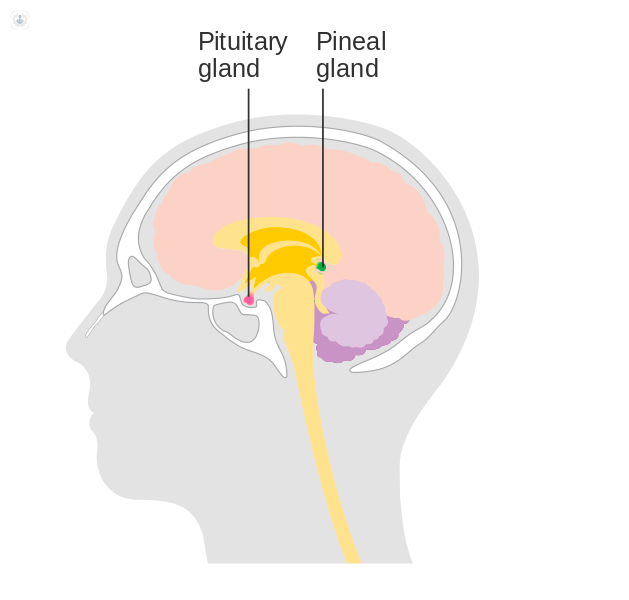

What is the pituitary?
The pituitary is a gland in the head that produces a number of hormones. These hormones help regulate the rest of the body and act as “slow-acting messengers” delivered to other parts of the body via the blood stream.
The pituitary is located behind the eyes and immediately under the brain. If it grows, it can start to push on the optic nerve, which is responsible for translating light entering your eyes into brain signals that allow you to see.

What is a pituitary tumour?
A pituitary tumour, or “adenoma”, is an abnormal growth of the pituitary gland.
In most cases, the tumour is benign (non-cancerous), so it will tend to grow slowly, and it doesn’t spread to other areas of the body.
There are different types of pituitary tumour, depending on whether or not the tumour affects your hormone production:
Non-secreting tumours do not cause hormonal symptoms, but all types of pituitary tumour can start to press on the optic nerve and interfere with your vision.
If a pituitary tumour grows large enough, it can cause damage to the pituitary tissue and result in hormone deficiency.
How are pituitary tumours diagnosed?
Pituitary tumour diagnosis may involve a number of tests including:
What causes pituitary tumours?
The cause of pituitary tumours is unknown. In a few cases, pituitary tumour growth runs in the family. Researchers are currently looking into whether tumours could be the result of a genetic mutation.
How are pituitary tumours treated?
In most cases, pituitary tumours are removed with surgery.
Surgery generally involves entering the area where the pituitary gland sits through the nose. By removing the tumour, you can avoid any damage to the eyes caused by the tumour pressing on the optic nerve, as well as correct or prevent further hormone disturbances.
The risks of surgery include:
In some cases, pituitary tumours are treated with radiotherapy, providing the tumour is away from the optic nerve. This may also a necessary treatment if surgery was unsuccessful in removing the tumour.
Finally, you may be given medication to regulate your hormone production while you wait for surgery, or to regulate it in the long term if the tumour has damaged your pituitary gland permanently.
What kind of specialist treats pituitary tumours?
You will usually be seen by a multidisciplinary team, composed of:
